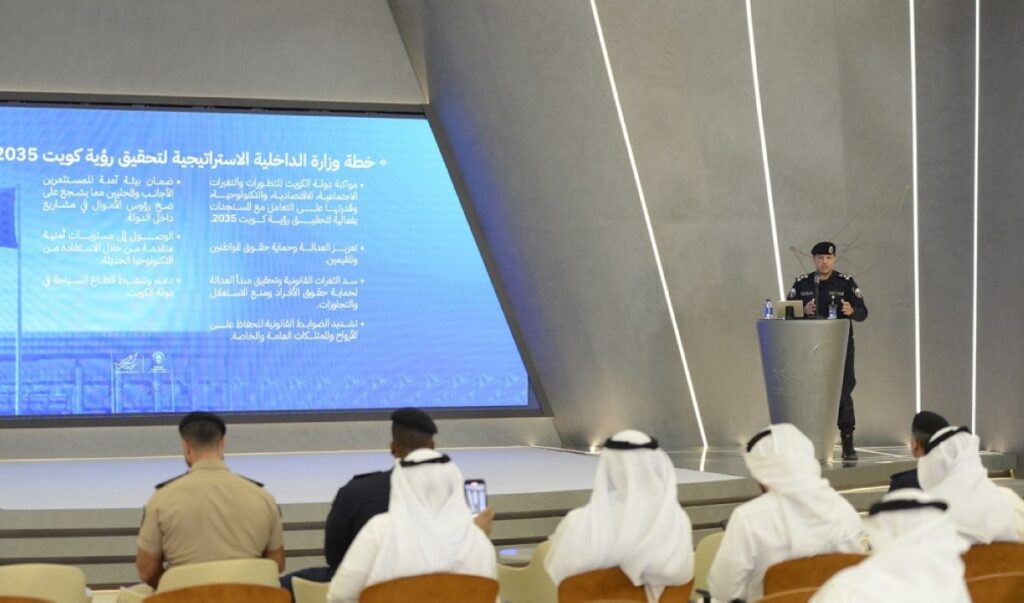Still-in-progress drug law proposes harsher penalties, better support for addicts: Official
KUWAIT: Kuwait’s Ministry of Interior reviewed the implementation of sweeping legal, digital, and security reforms under its 2025 strategic plan during a media briefing on Wednesday. The plan aims to create a safer, more attractive environment for investment and tourism while strengthening the country’s security apparatus, he said.
“Our strategic plan is designed to keep pace with social, economic, and technological changes,” said Brig Gen Nasser Buslaib, Director General of Relations and Media at the ministry. “It boosts our ability to respond effectively to new developments and ensures that the security establishment is fully aligned with the New Kuwait 2035 vision.”
Harsher drug law
He outlined amendments to Kuwait’s traffic and residency laws, with upcoming changes to narcotics legislation still in progress. “The plan aims to reinforce justice and protection for both citizens and residents and close legal loopholes to safeguard against exploitation and abuse,” he said.
Buslaib noted that the new residency law addresses labor market demands, protects worker and employer rights, and includes clear regulations to combat human trafficking. He also highlighted the e-visa platform—Kuwait Visa—which streamlines access to various visa types, including tourism, business, and family visit visas.
He previewed the forthcoming drug law, which aims to crack down on trafficking and improve support for addicts. The law proposes “harsher penalties for drug-related crimes” and grants authorities expanded powers to dismantle trafficking networks. It also outlines a national rehab and reintegration plan for addicts. The law’s first draft was completed in April and submitted to the Cabinet for review.
In 2024, 39 drug-related deaths were recorded. In just the first half of 2025, the ministry reported 1,451 drug cases, 261 addiction complaints, 1,864 accused individuals and 11 deaths.
16.3m biometrics
A key focus of the ministry’s efforts has been digital transformation. According to Buslaib, the ministry now offers 37 services through the “Sahel” app, with over 30 million transactions processed. “This transition has simplified transactions, reducing the need to physically visit government agencies for paperwork,” he said.
The ministry has also ramped up biometric data collection, registering over 16.3 million biometric fingerprints covering citizens, residents, and visitors. “This project boosts border security and helps detect identity fraud,” Buslaib added. “It has already helped reduce document forgery and raised operational efficiency at borders and airports. It also helped authorities find wanted individuals, protecting society from crime.”
Drop in violations
He also introduced the Coast Guard’s new unmanned smart boats, capable of long missions without human operators. These vessels conduct surveillance, track suspicious maritime activity, and support rescue operations—enhancing maritime security and protecting natural resources.
Meanwhile, traffic law amendments—implemented in April—have had measurable impact, said Buslaib. The use of AI-powered cameras and stricter penalties for reckless driving led to an 83 percent drop in speed and red-light violations, 75 percent drop in seatbelt and mobile phone offenses, and 55 percent reduction in fatal traffic accidents.
“In 2024, we averaged 300 accidents a day,” he said. “Most of them—90 percent—were due to driver distraction. The amendments have increased awareness among drivers, leading to a drop in these numbers.” — Agencies

